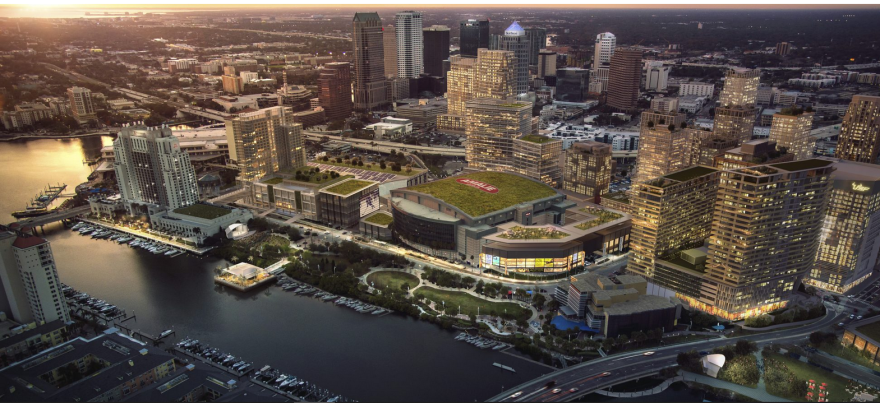The CEO of the company building the largest development ever in downtown Tampa spoke Friday morning at Cafe con Tampa.
James Nozar of Strategic Property Partners responded to published reports that Tampa Bay Lightning owner Jeff Vinik - one of the main financial backers of Water Street Tampa - lobbied then-Gov. Rick Scott to get the federal government to allow a tax abatement zone intended to spur development in low-income areas.
Nozar said these "opportunity zones" were created to spur investment. He said downtown Tampa was already in a community redevelopment area and was primed for investment anyway.
"So a lot of these projects have been talked about for many, many years, and opportunity zones is one of many tools at the state and the federal level to encourage that," he said after his speech. "So, we were supportive. We followed (Tampa Mayor Bob Buckhorn)'s support, and focusing that investment in the urban core of Tampa. "
Here's an excerpt from the Pro Publica story:
Scott made a wealthy downtown area an opportunity zone at the request of a firm controlled by yet another billionaire donor, Tampa Bay Lightning owner Jeff Vinik. This, too, does not involve a new investment. Since as early as 2014, Vinik has been planning a massive redevelopment project in the area that will include luxury residences, hotels and shops.
Trump has hailed the opportunity zone program. Opportunity zones “are doing unbelievably well. And you’ll see that, and you’ve already seen it,” he said in August. “And the biggest beneficiary there is African Americans.”
But in Florida, the tract selections highlight one significant vulnerability in the opportunity zone process. The Trump tax law gave governors the authority to distribute valuable tax breaks, and they have wielded it to benefit the politically connected.
The $3 billion Water Street development will include 18 towers, 3,500 residential units, two hotels, one million square feet of retail space and more than one million square feet of office space.

About 1,300 new residences will be built as part of the neighborhood’s initial phase, bringing nearly 2,000 residents to the neighborhood as soon as 2021.
Nozar says no affordable housing units will be marketed in the project's first phase, but some housing prices will be under the market rate for the rest of downtown.
"So also part of the solution is providing a variety of housing for a variety of household types and a variety of price points, that we candidly don't see enough here in the region," he said.
Nozar also says they're putting a lot of effort into the public infrastructure - like raising the streets by three to four feet to deal with possible flooding - and has supported expanding mass transit and the county's new transit sales tax, which has been mired in the courts.




